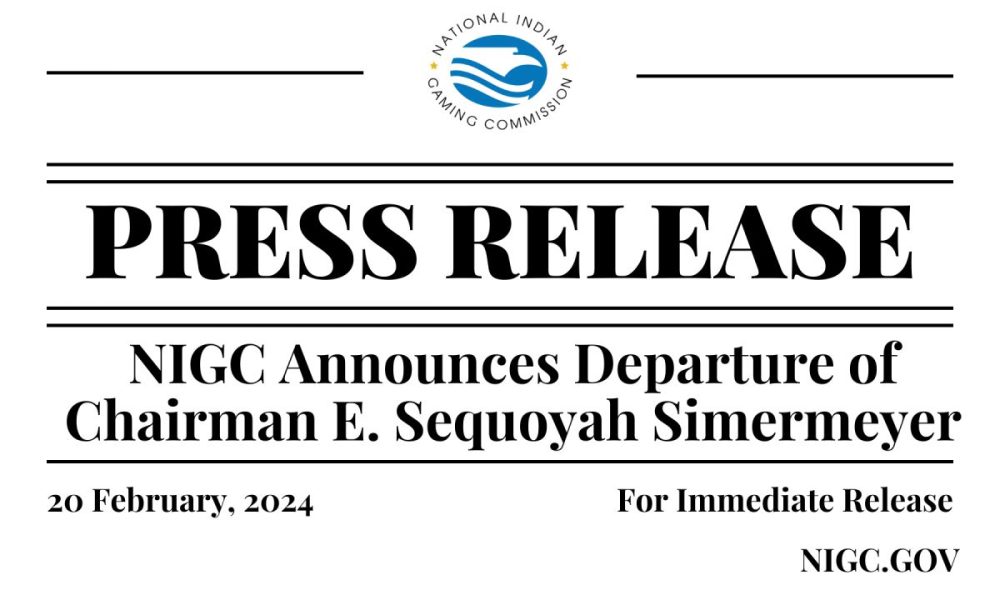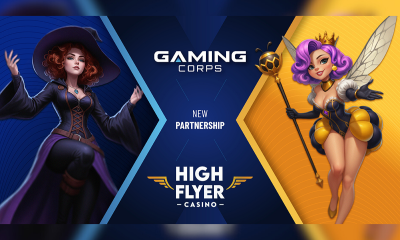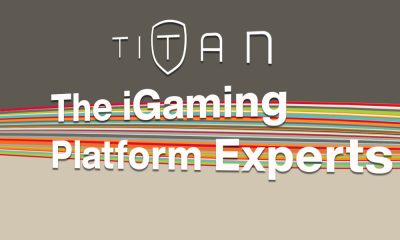E. Sequoyah Simermeyer
FanDuel Appoints E. Sequoyah Simermeyer as VP of Strategic Partnerships

FanDuel Group, a subsidiary of Flutter Entertainment, has appointed E. Sequoyah Simermeyer to the newly established position of VP of Strategic Partnerships.
Simermeyer boasts a distinguished career in public service, where he most recently served as the Chairman of the National Indian Gaming Commission (NIGC).
In his new role at FanDuel, Simermeyer aims to play a crucial part in leading the company’s initiatives to cultivate sustainable commercial relationships across the US, with a specific focus on promoting economic development that supports tribal sovereignty.
“Sequoyah Simermeyer has been at the forefront of shaping and safeguarding tribal gaming, focusing on priority issues and public policy for close to 25 years. We are very honored to welcome Chairman Simermeyer to the FanDuel leadership team, as he brings a career dedicated to addressing tribal economic development. With his guidance we look forward to learning how to best partner with and support native sovereign nations across the country,” FanDuel Senior VP Rikki Tanenbaum said.
“It mattered to me to join a team where I could use my background as a former regulator, legislative staffer and public servant to Indian Country. FanDuel is the leader in mobile gaming and has helped shape the rise of the legalized and regulated marketplace in the US. Mobile gaming remains a very young and dynamic industry, and I’m excited to help the team build out our capacity to work within Indian Country nationally to take advantage of opportunities ahead,” Simermeyer said.
Compliance Updates
NIGC Announces Departure of Chairman E. Sequoyah Simermeyer

The National Indian Gaming Commission (NIGC) announced the resignation of E. Sequoyah Simermeyer, as the chairman of NIGC, effective Saturday, Feb. 24, 2024.
Simermeyer, confirmed by the U.S. Senate in November 2019, led the Agency through unprecedented challenges of a global pandemic. During this time, the Agency helped set the regulatory conditions for a multi-year, post-pandemic recovery, where Indian gaming gross revenues rose to a record $40.9B last year. Prior to his tenure as chairman, Simermeyer served with NIGC as associate commissioner and director of the Office of Self-Regulation since 2015.
Reflecting on his time at the Agency, Simermeyer said, “I’ve witnessed firsthand how tribes across the Indian gaming industry have pursued economic sustainability through gaming by relying on – and cultivating – the robust regulatory reputation for which Indian gaming is well known, and made better when supported by effective and efficient measures by Indian gaming’s regulators. I’m proud of the integral part this Agency has played in meeting the challenges of an evolving industry, and encouraged that NIGC’s strong cadre of professionals will continue to work hand-in-hand with gaming operations to ensure tribal gaming remains primarily for the benefit of its citizens as the Indian Gaming Regulatory Act (IGRA) mandated 35 years ago.”
From day one, Simermeyer established industry integrity, preparedness, outreach, and Agency accountability as strategic goals for the Agency, leading NIGC through a period of growth and expansion of programs and services available to gaming tribes.
Under Simermeyer’s leadership, the Agency took steps to grow its capacity to provide outreach, training and technical assistance to gaming tribes, notably formalizing its Environmental Public Health and Safely (EPHS) program to assist tribes with overall operational preparedness, and expanding the Agency’s ability to provide cybersecurity technical assistance as the industry faced emerging threats from cybercrimes, including NIGC’s first Chief Information Security Officer. His “3 for 35” campaign for workforce preparedness, aimed at building regulatory capacity to future-proof tribal gaming, was also an Agency signature outreach effort during his tenure.
NIGC’s efficient and effective approach to regulation was driven by its formalized, collaborative tribal consultation process, where over the past three years, the Agency published eight final rules to keep pace with changing regulatory conditions and industry best practices, while allowing tribes the maximum flexibility allowed under IGRA to pursue efficiencies intended to help operations grow and thrive. To further strengthen its compliance and oversight functions, the Agency also rolled out the “Report a Violation” tool on its website to allow for reporting suspected IGRA violations. NIGC also provided important clarity in the wake of industry-wide questions arising from emerging topics such as significant court decisions on sports betting, the impact of cannabis on licensing and the use of gaming revenue, and the independence of tribal gaming regulatory bodies.
Simermeyer also positioned the Agency as a lead collaborator with federal agencies and organizations similarly dedicated to the success of tribal gaming. NIGC’s annual multiagency Cybersecurity Symposium, Anti-Money Laundering/Banking Security Act (Title 31) regulatory training conference and ongoing partnership with the Department of Homeland Security’s Blue Campaign to prevent human trafficking, are all examples. He also led the Agency to pursue memoranda of understanding with federal agencies like the Federal Reserve Bank of Minneapolis, to promote a shared interest in researching the impacts of lending to tribes engaged in gaming and facilitating tribal access to capital.
Focusing on Agency operations, Simermeyer led the Agency through a multi-year IT security modernization plan to improve NIGC’s internal cybersecurity and resilience. Additionally, he transformed the Agency’s Criminal Justice Information System (CJIS) Audit program to better align with FBI requirements. As another step towards transparency and accountability, the Agency reimagined its fiscal annual report to better tell the story of its commitment to preserve and protect Indian gaming under IGRA, and the stories of the employees behind it. Perhaps most important, under Simermeyer’s leadership, the Agency achieved a 91% employee satisfaction rating on the 2023 Federal Employee Viewpoint Survey (FEVS), making the NIGC one of the best places to work in the federal government.
On transitioning to the next stage of his career, Simermeyer is grateful for his nearly nine years with the Agency. “My time with NIGC has been some of the most memorable and impactful years of my career. As a Native person, I’m truly blessed to have been surrounded by experts dedicated to protecting and preserving the valuable resource Indian gaming represents for our communities. I’m thankful for the advice and counsel of my fellow commissioners and NIGC staff, and the support and hard work of the nearly 5,000 tribal regulators who work alongside NIGC day-in and day-out to keep Indian gaming strong now, and for the next 35 years,” said Simermeyer.
Additional details regarding the transition will be forthcoming.
Canada
NIGC Publishes Details of Fiscal Year 2020 Gross Gaming Revenue

Chairman E. Sequoyah Simermeyer and Vice Chair Jeannie Hovland of the National Indian Gaming Commission (NIGC) have announced the fiscal year 2020 (FY2020) gross gaming revenue (GGR) for the Indian gaming industry. FY 2020 revenues totaled $27.8B, a decrease of 19.5% over FY 2019.
The COVID-19 pandemic impacted the FY 2020 GGR results. Unlike previous years, the NIGC administrative regions experienced a FY 2020 decline of more than 13% in GGR. The Rapid City Region experienced the largest decrease of 36.6%.
“This Gross Gaming Revenue decrease was expected; the unknown was just how much of an impact COVID-19 had on Indian gaming. Every year, the annual GGR figure tells a story about Indian gaming’s successes, contributions to Indian communities, and economic impacts. This was highlighted even more during the pandemic. Nevertheless, tribes were on the forefront of creating standards, developing new safety protocols, and sharing community resources. I foresee this decrease as only a temporary setback for Indian gaming,” Chairman Simermeyer said.
The GGR figure is an aggregate of revenue from 524 independently audited financial statements of 248 federally recognized Tribes across 29 States. The GGR for an operation is based on the amount wagered minus winnings returned to players.
“Despite the limits and uncertainty of the last year, it is important to focus on the sacrifices of and economic refuge provided by tribes and the community impacts. Tribal gaming has shown resilience and commitment, and continues to develop new roads to economic stability. I look forward to seeing Indian gaming continue to lead the way in efforts to reduce the economic impact of the COVID-19 pandemic,” Vice Chair Hovland said.
Powered by WPeMatico
-

 Edvardas Sadovskis CPO at ICONIC217 days ago
Edvardas Sadovskis CPO at ICONIC217 days agoICONIC21 Reimagines Myth: Medusa vs. Perseus — The Stone Duel
-

 Canada7 days ago
Canada7 days agoGaming Corps takes flight in Ontario with High Flyer Casino partnership
-

 Africa7 days ago
Africa7 days agoAmusnet Announces Strategic Partnership with Betway
-

 CRM7 days ago
CRM7 days agoTitan 3.0 Launch Marks Finnplay’s Biggest Platform Overhaul
-

 Christer Fahlstedt6 days ago
Christer Fahlstedt6 days agoPaf has halved its loss limit since 2018
-

 Canada7 days ago
Canada7 days agoCasinoCanada and GG.BET Forge Strategic Alliance
-

 Latest News6 days ago
Latest News6 days agoWinSpirit’s UnValentine’s Day: A New Take on February Engagement
-

 AGLC7 days ago
AGLC7 days agoContinent 8 set to back Alberta’s iGaming operators and suppliers





























